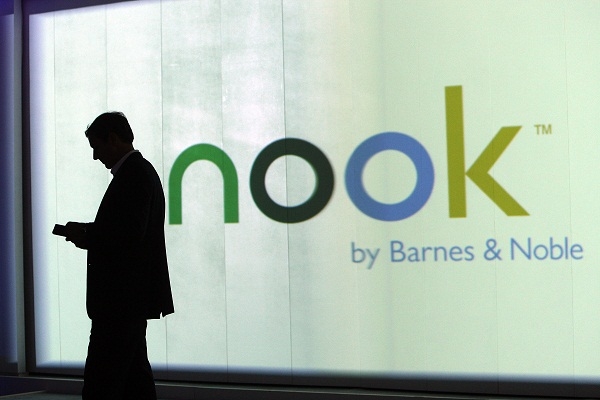If you had a pile of 300 books in your house waiting to be read, what would you do? Would you go out and buy any more books? I doubt it, even if you could battle your way to the front door. Yet if you’d got 300 books on your Kindle/iPad/Other E-Readers Are Available waiting to be read, would you stay in and click on any more ‘Buy It Now’ logos? More than possible. Because you probably wouldn’t even have noticed how many books were on there. Never mind 300, you can put 3000 books on an e-Reader and it’ll look and weigh just the same as if you had one on there. (Modern technology is the equivalent of those irritating people who can stuff chips and cakes down themselves all day long without every putting on an ounce.) And with so many e-Books costing pence rather than pounds, there’s precious little financial disincentive to keep buying either. Fancy that Updike? That David Niven autobiography? That entire collection of everything Dickens ever wrote in his whole life? Go on – fill your boots, and indeed your bytes. The curious thing about an e-Book is the same as the curious thing Sherlock Holmes spotted about that dog: they don’t bark. They sit there silently, knowing that in all probability their pixels are never going to dance before your eyes.
In fact the only disincentive of any kind at all is the cultural one. The feeling, shared by just about all of us old enough to remember the days when ‘kindle’ was merely a verb, that a book is something to be cherished. If that’s how you view the things, you’re not going to like yourself for buying more of them than you could possibly read in the next decade, never mind year. I get twitchy when the pile on the floor by my bed reaches the top of the mattress, and if it’s mostly hardbacks that’s only a dozen or so. Several people I’ve spoken to recently have mentioned the craziness of just how many e-Books they’re carrying around. Sometimes you get the sense they resent themselves for it. They certainly resent their e-Readers.
Perhaps this helps explain the recent story about Barnes and Noble’s digital revenue (from its Nook device) falling even faster than its revenue from conventional sales. Perhaps we’re entering a temporary blip in the rise and rise of the paperless book, where people look at their e-Reader and say: ‘hang on, there are now so many words in this thing it’s like Neil Kinnock on coke, what am I thinking of?’ Even if we are, though, that’s all it will be – a temporary blip. Because sooner or later the generation will take over who don’t see digital content as something to be consumed, they see it as something to be obtained. At some point in the future you might consume (or, as we so quaintly say with books, ‘read’) it. You might equally well delete it to make room for more content.
This was really brought home to me by a Radio 4 interview Nick Mason gave to mark the 40th anniversary of Dark Side of the Moon. It aired the very same day I read that Barnes and Noble story. He bemoaned his children’s attitude to music – it’s something they download simply because it’s there. They do so indiscriminately, without any real emotional involvement. Because there’s no physical product, no much-loved circle of vinyl encased in a beautiful cover showing a beam of light hitting a prism, there’s nothing to form a relationship with, to bond with. When it’s time to ditch the notes, they get ditched, simple as.
Good news for writers, in a way, assuming the economics of publishing continue to let them make any sort of money from the sale of their work. It will mean that people are much more likely to buy their books, if not read them. I’m just not sure what it will mean for the way we engage with a book. Will we be less likely to persevere with a difficult one? To re-read old favourites? To form favourites in the first place? How will we see books, when books aren’t there to be seen?






Comments